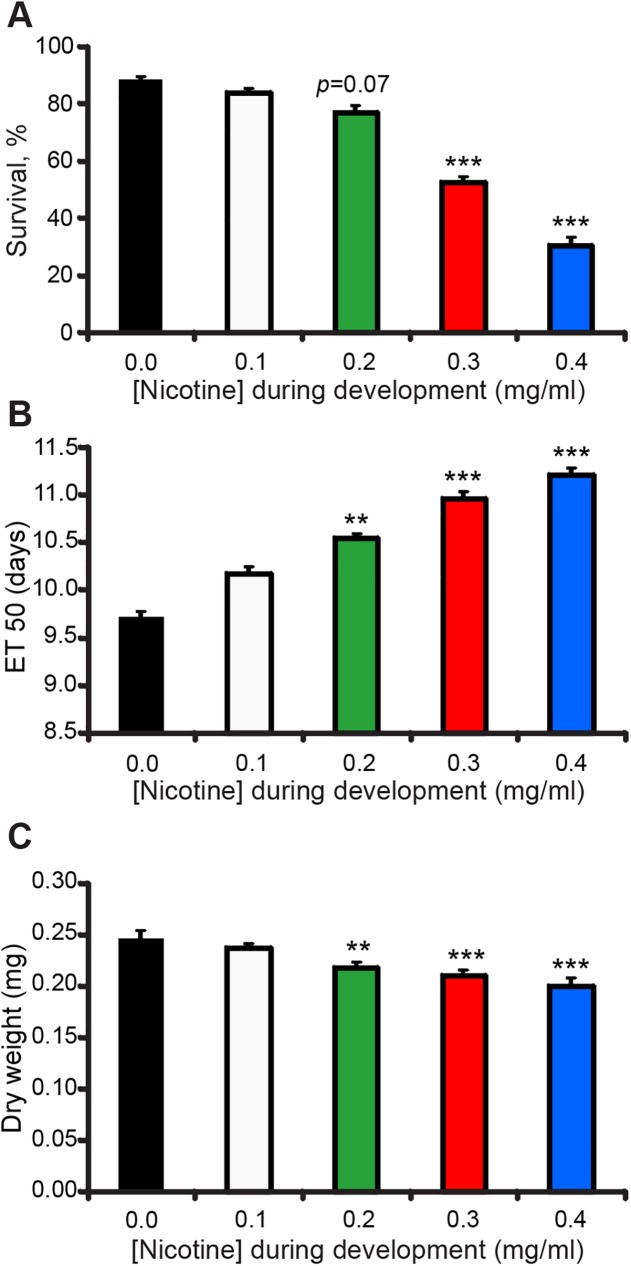Fig 1. Nicotine-reared flies show reduced survival, developmental delay, and lower adult weight.
Flies were reared on control or nicotine food from egg to adult and the number of eclosed flies over time was counted to estimate survival and developmental delay. For dry weight experiments, flies were collected 2 days after eclosion, desiccated for 9 days and weighed. (A) Percent survival by 16 days after egg-laying (ael) was significantly reduced from control (0.0 mg/ml nicotine) with increasing nicotine concentrations. (B) Time to 50% eclosion (ET50) was significantly longer than control with increasing nicotine concentrations. (A-B) Kruskal-Wallis followed by Dunn-Bonferroni pairwise comparison; only comparisons against control are shown; n ≥ 17 samples per nicotine concentration from n ≥ 4 independent experiments. Each sample is a fly vial with 50–100 animals exposed to nicotine. (C) Adult male dry weight was significantly lower than control with increasing nicotine concentrations. ANOVA followed by Dunnett's test; n ≥ 10 samples per nicotine concentration from n ≥ 4 independent experiments. Each sample is an eppendorf tube with ≥ 5 flies per tube to weigh.

